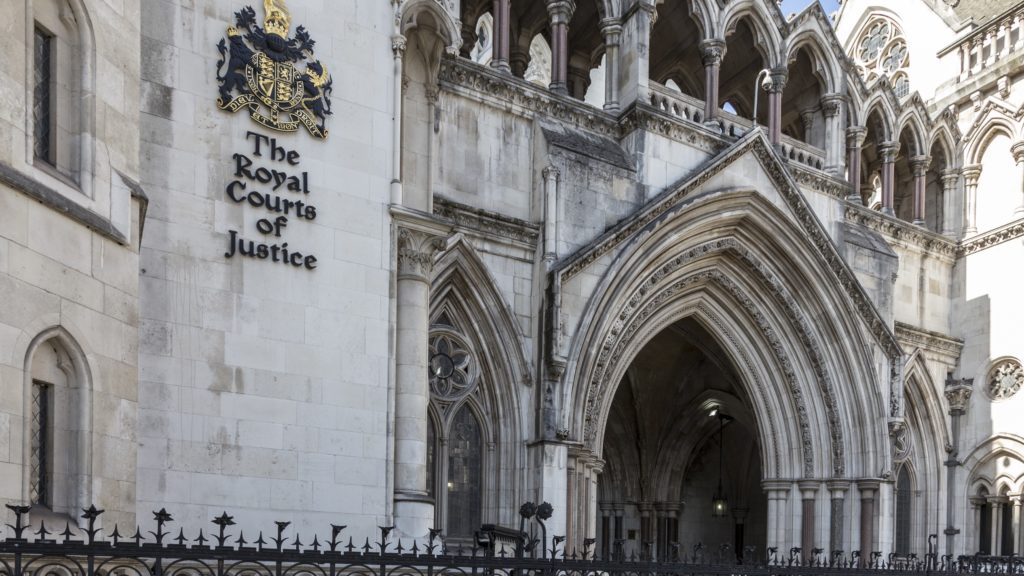The International Family Law Group represented the appellant mother in the recent Court of Appeal case of Re O (Summary Return: Non-Convention Country) [2025] EWCA Civ 660. The case serves important reading for practitioners of international children law, and highlights the intricacies involved in applications for return to non-Hague Convention states.
Background
The case concerned the father’s application for the return of two children to Nigeria. The parents and children are all Nigerian and British nationals, and have all spent time living in both the UK and in Nigeria.
In December 2022, the father moved to a third state (‘X’) for work. The mother and children remained in the UK. In December 2023, the mother and children travelled to X. The mother and children spent one month in X before travelling on to Nigeria, accompanied by the father. When in Nigeria, the family lived with the father’s family. After a fortnight, the father returned to X.
In the spring of 2024, the mother regarded the marriage as having broken down. In June 2024, the mother left Nigeria and travelled with the children to England; this was done without the knowledge of the father.
The father then issued proceedings in the High Court in London, seeking the return of the children to Nigeria. The application was timetabled towards a final hearing, but for a number of reasons, the application did not proceed as planned; the date for the final hearing was pushed back to December 2024.
Neither we, nor our instructed counsel, represented the mother in the High Court proceedings.
Following an aborted final hearing due in large part to the mother’s previous solicitors’ negligence, the matter was re-timetabled to a further final hearing in January 2025.
Within her evidence, the mother made a large number of serious allegations of domestic abuse against the father and his family; she alleged physical abuse of herself and the children, emotional abuse, verbal abuse, controlling and coercive behaviours. The mother further stated that she had been the victim of rape and sexual abuse by the father. Accordingly, the Judge directed the mother to file and serve a schedule of allegations of domestic abuse on which she wished to rely within her defence of the father’s application. The father also made allegations against the mother and her care of the children.
At the outset of the January 2025 final hearing, the mother indicated through her counsel that she no longer wished to pursue the allegations of rape and sexual assault; she sought findings on all other allegations. Over the following days, oral evidence was given by the mother and father, and by witnesses called on behalf of the father.
Ultimately, the Judge concluded that it was in the best interests of the children that they be returned to Nigeria. She rejected the mother’s allegations of domestic abuse, and ordered the return of the children to Nigeria, in the company of the father if the mother chose not to travel.
After changing legal team, the mother was granted permission to appeal, with her appeal focusing primarily around issues concerning the analysis of the children’s welfare, the court not investigating the mother’s allegations of domestic abuse, and the judge’s approach to a non-Hague Convention case. She also alleged that failures of her previous legal team impinged on her ability to defend the father’s application.
Nigeria as a non-Hague Convention state
The judgment of the Court of Appeal makes extensive reference to Nigeria being a “non-Hague Convention state”; that is to say, that Nigeria is not a signatory to the 1980 Hague Convention on the Civil Aspects of International Child Abduction. Cases under that Convention, which applies between the UK and 80 or so other countries, follow a markedly different trajectory. In abduction matters between the UK and those states, the court is obliged to return an abducted child to their state of habitual residence, unless one of a very limited number of specific defences (known as exceptions) apply.
As Nigeria is not a signatory state to that Convention, abductions between the UK and Nigeria are to be determined on the basis of whether it is in a child’s best interests to be returned. This assessment, which is usually carried out on a summary basis, underpins how international children matters between the UK and non-Hague states are determined.
The appeal process
The Court of Appeal was keen to stress that “An application for a summary return of a child to a non-Hague Convention country…is to be determined simply and straightforwardly by what is in the child’s best interests”, and that a judge considering a non-Hague return application must undertake:
“…a swift, realistic and unsentimental assessment of the best interests of the child, leading, in proper cases, to the prompt return of the child to his or her own country, but not the sacrifice of the child’s welfare to some other principle of law”. Ormrod LJ in Re R (Minors) (Wardship: Jurisdiction) (1981) 2 FLR 416, at 425.
The Court went on to reaffirm this as “the definitive statement of the law in this area”, and moreover, that a judge ought not to apply Hague Convention rules or case law in a non-Hague Convention case.
What about a parent’s refusal to return?
A complex issue that features in many an abduction case is the effect, if any, of a parent refusing to accompany their children if their return is ordered. This was part of the mother’s case at first instance, and the Court was obliged to analyse this through the prism of the children’s best interests.
Courts have been exceptionally cautious in the past about this very issue; the Court of Appeal was recently obliged to consider it in Re R (Child Abduction: Parents’ Refusal to Accompany) [2024] EWCA Civ 1296; [2025] 2 WLR 141 at [36]:
“The court will … make a reasoned assessment of the degree of likelihood of the parent not returning. Relevant considerations will no doubt include the overall circumstances, the family history, any professional advice about the parent’s health, the reasons given for not returning, the possibility that the refusal is tactical, and the chance of the position changing after an order is made”.
For the mother in the matter of Re O, it was the judge’s assessment that the mother’s intention not to return was ‘tactical’. This was a finding upheld by the Court of Appeal.
Domestic violence
A further issue for the Court of Appeal to consider was that of a parent making serious allegations, only for them to be withdrawn at a hearing. If that occurs, is the Court obliged to investigate the allegations regardless? What occurs in this type of case, which is founded essentially on analysing a child’s best interests?
Practitioners will (hopefully) be familiar with Practice Direction 12J, pursuant to which the Court is tasked with investigating allegations of harm and domestic violence. The Court of Appeal highlighted that, although strictly speaking, PD12J FPR 2010 does not apply to applications under the inherent jurisdiction (see paragraph 1 PD12J), in practice it will always be treated as applicable.
The Court of Appeal upheld the judge’s decision not to investigate further, particularly in the light of:
- 17, which talks of the “necessity” of such an investigation;
- Para 17(a) of PD12J FPR 2010, which highlights the need to consider the views of the parties;
- The overriding objective, concerning the management of the court’s resources and the proportionality of this specific enquiry.
The Court went on to make a number of observations of the mother’s previous legal team, and her arguments as to the prejudicial impact they had on her case. Ultimately, the Court of Appeal dismissed the mother’s appeal and upheld the order for the children’s return to Nigeria.
The case underscores not only the intricacies involved in non Hague Convention returns, but also the need for meticulous preparation from the very beginning in a case of this nature. The Court is tasked with making what are often enormously challenging, binary decisions as to whether it is in a child’s best interests to be returned, with an eye to the need of investigating allegations of harm, each parent’s position, and the international conventions that apply.
Partner James Netto represented the appellant mother at the Court of Appeal stage, instructing Michael Gration KC and Charlotte Baker of 4pb.
James Netto
[email protected]
The International Family Law Group LLP
www.iflg.uk.com
© June 2025
- James Nettohttps://iflg.uk.com/team/james-netto
- James Nettohttps://iflg.uk.com/team/james-netto
- James Nettohttps://iflg.uk.com/team/james-netto
- James Nettohttps://iflg.uk.com/team/james-netto











